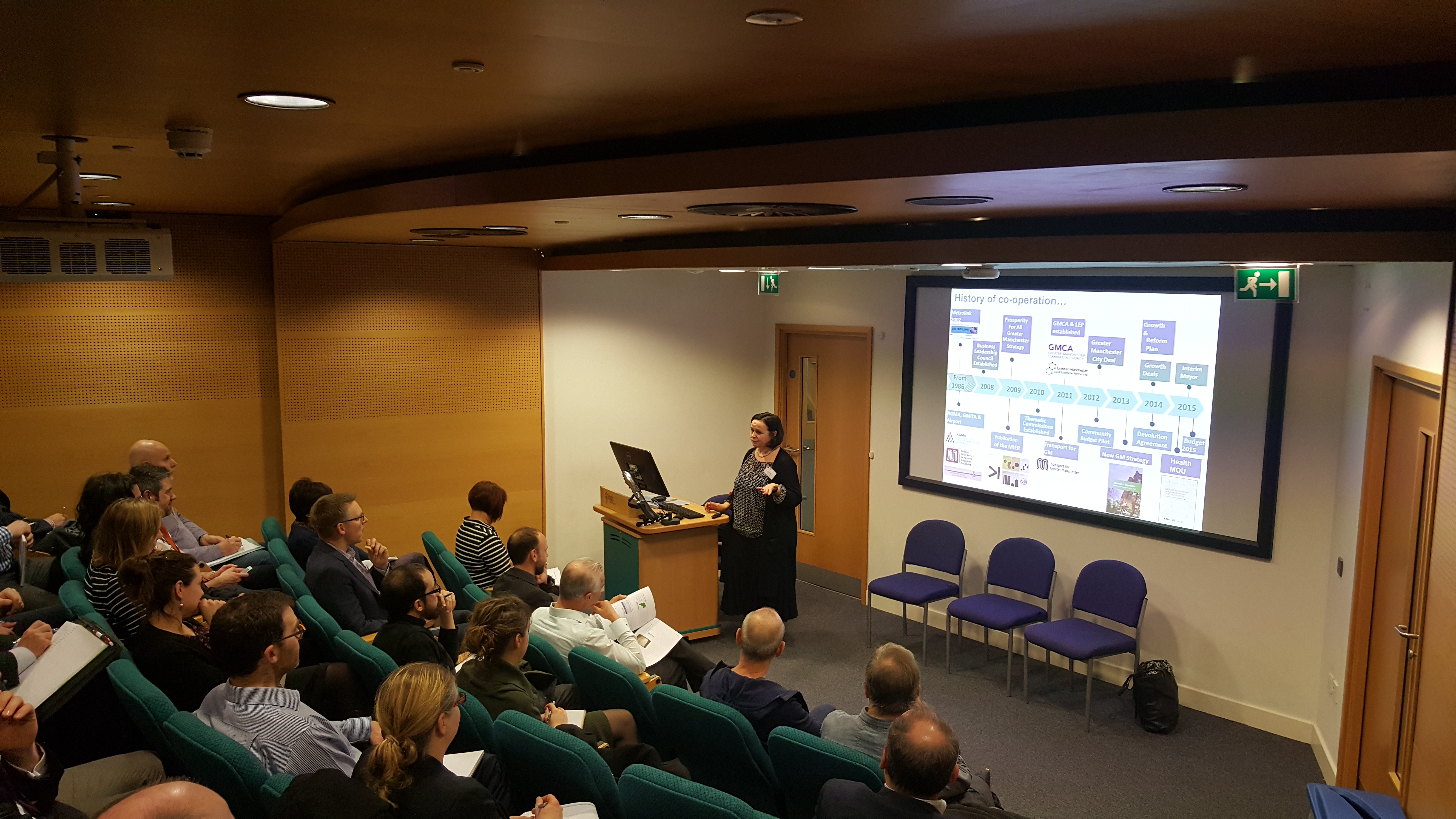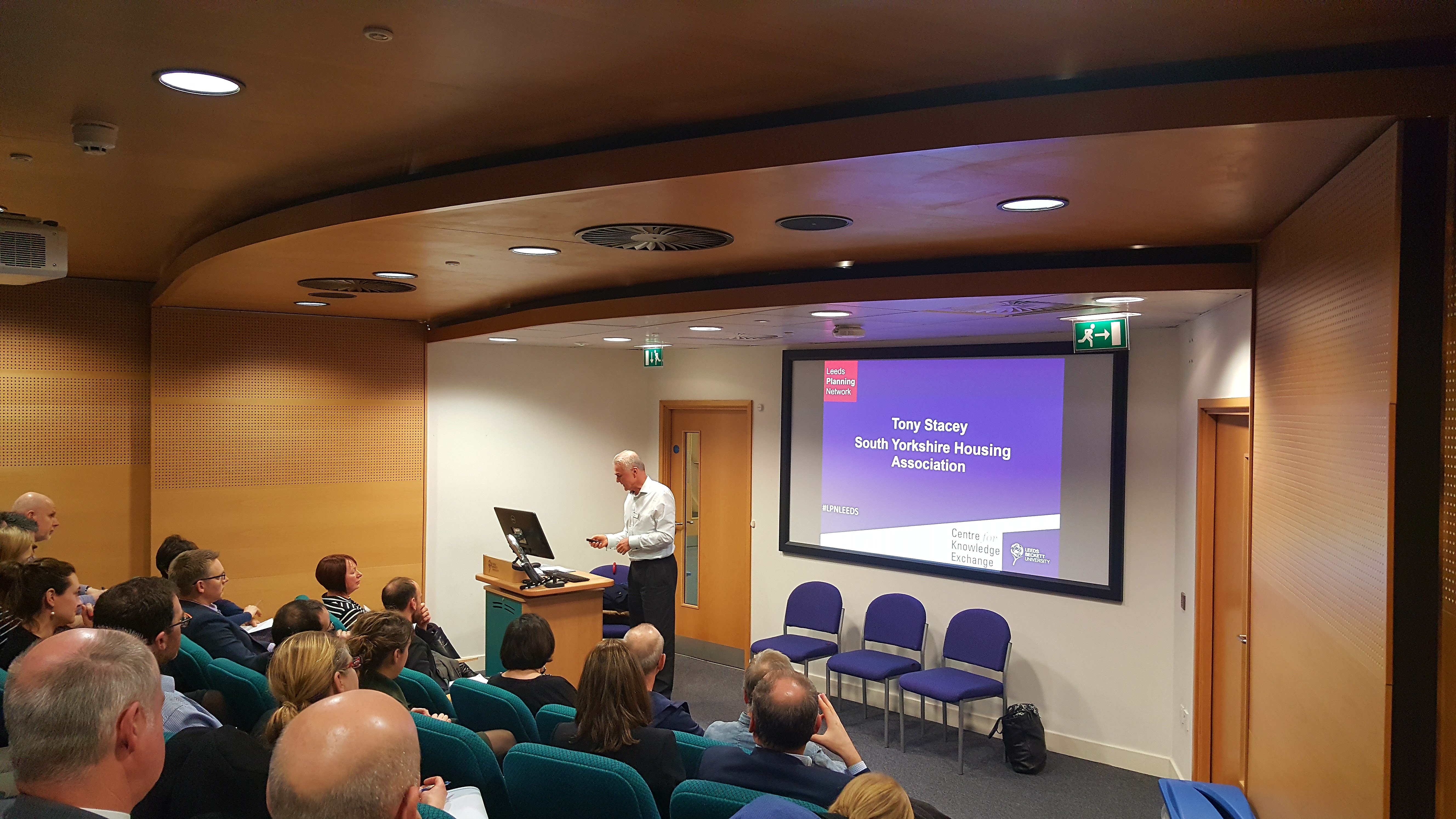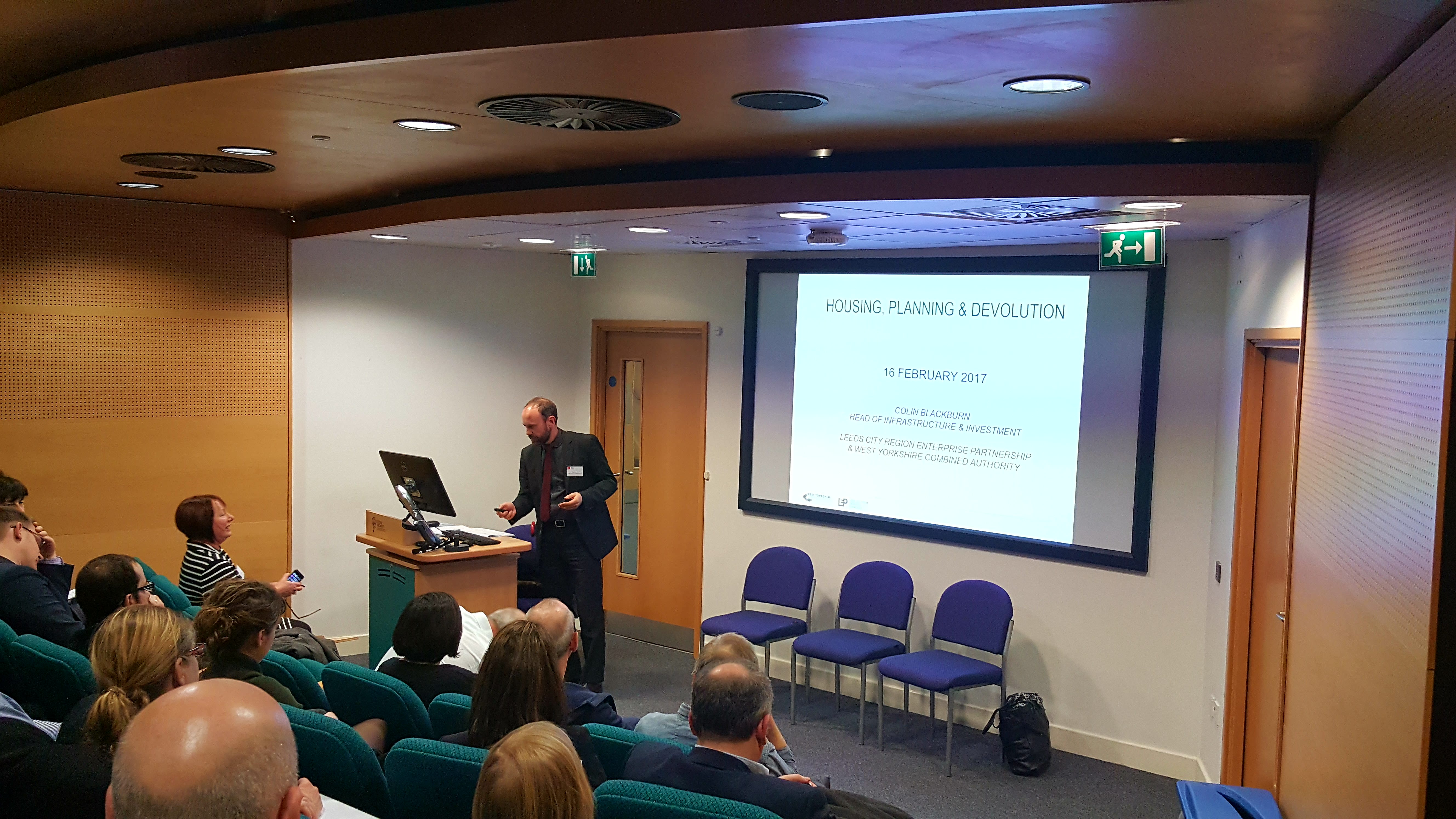


Planning and housing strategies are essential for economic growth in the Combined Authorities and delegates at the Leeds Planning Network event in February had the opportunity to study three different approaches.
Speakers from Greater Manchester Combined Authority, South Yorkshire and Leeds City Regions provided much needed insight into the impact on planning and housing strategies on the city devolution agenda. They were ably chaired by consultant and researcher Jane Kettle, and addressed an audience of around 50 practitioners. Identifying a choice of strategies, the three speakers shared a vision that links housing growth to rising prosperity.

Anne Morgan, Planning Strategy Manager for Greater Manchester set out the benefits and challenges of the Combined Authority. The ability to produce a Greater Manchester spatial framework has made it possible to identify strategic growth areas, and plan collectively and consistently across ten local government areas. The spatial framework is supported by Mayoral compulsory purchase powers, and benefits from the potential to create Mayoral development companies. It has enabled the authorities to identify priorities, not only for economic growth but for the enhancement of green infrastructure. But it has also entangled the Combined Authority in public controversy over the loss of green belt land as tough decisions on housing allocations are made.
You can look at Anne Morgan’s presentation here: Anne Morgan – GMSF Leeds .

While the route to becoming a Combined Authority has not been smooth in South Yorkshire, a collective approach to planning and housing has emerged from the bottom-up. A housing compact agreed between registered providers in South Yorkshire was hailed by Tony Stacy, chief executive of South Yorkshire Housing Association, a leap forward in co-operation and joint planning. The compact between local authorities and housing associations demonstrates a willingness to work collaboratively in meeting housing need. It has resulted in a joint bid for housing investment and plans to radically expand the number of new homes built. Housing – once excluded from the priorities of the city region – is now seen as a key part of the infrastructure of economic growth.

An infrastructure investment framework has enabled the West Yorkshire Combined Authority to co-ordinate strategic planning in the Leeds city region and neighbouring areas. Colin Blackburn, Head of Infrastructure, stressed the need for a shared approach to planning and placemaking. While political structures evolve slowly, it is co-operation between authorities on development frameworks, land acquisition, site selection that makes combination possible. Significant challenges to housing delivery persist, and the Government White Paper provided few solutions, but agreement on strategy and consistency in approach are key achievements for West Yorkshire authorities.
By Quintin Bradley










Leave a Reply